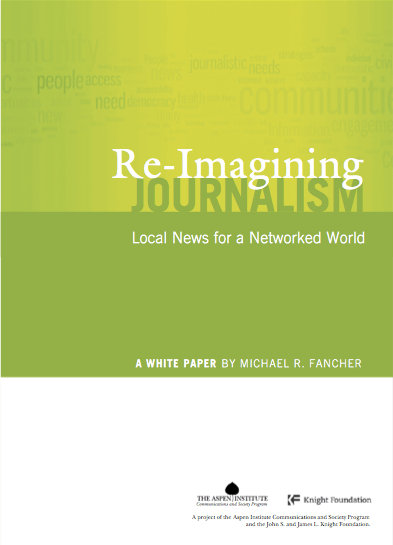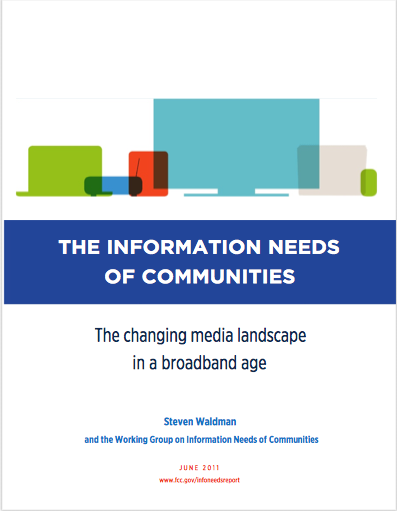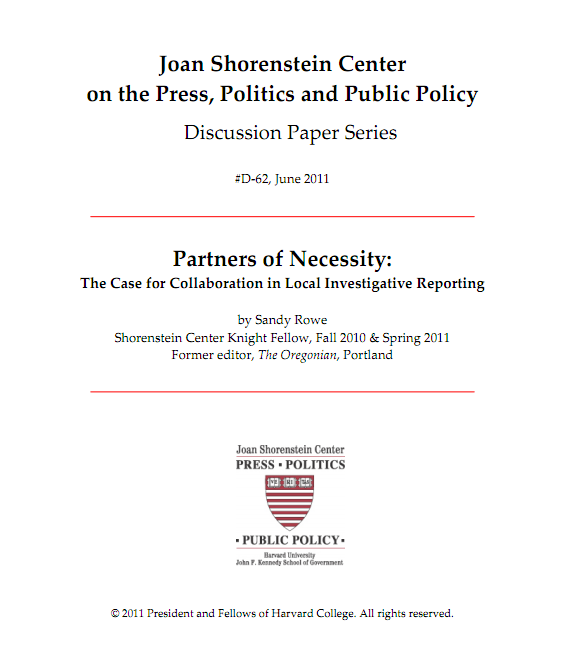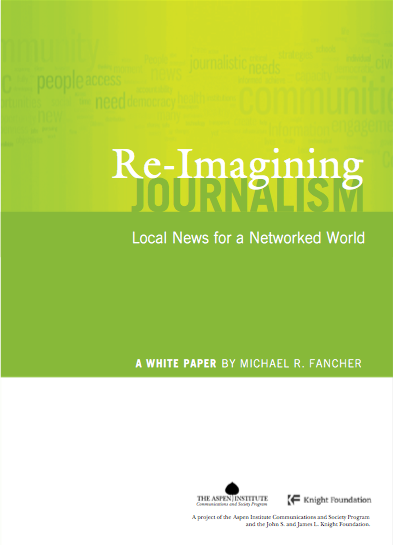
The future of news? Four different sources weigh in
It is no secret that the news industry is struggling in the midst of our digital revolution. But what exactly is happening? How are these changes affecting our communities? And what should be done to make sure that people are getting the information they need? This summer, four different reports that address these questions have been released (a fifth, by the New America Foundation, will be out shortly). These reports come from different sources—a British weekly news magazine, the U.S. government, an educational institution, and a non-profit—so they bring different perspectives and ideas to the table. But many themes, like the need for innovation and collaboration, recur. As I mentioned in a previous blog post, I will discuss the content of these reports, as well as their strengths and weaknesses.
The Economist series, published July 7, includes social media, how media is faring in different countries, WikiLeaks and other media “newcomers,” among other articles. One of the highlights of the series comes from an article about impartiality, where, in a show of refreshing forthrightness, the Economist describes Fox News as “offer[ing] distinctively right-wing opinion and commentary,” and says that “MSNBC…has lately been positioning itself to appeal to a left-wing crowd.” Maybe because the Economist is a British magazine, it seems to be more straightforward about news slant than many American journalists. Overall, the Economist piece provides pretty thorough coverage of the problems facing modern media, but is short on solutions. Their coverage of “philanthrojournalism,” is particularly feeble: a suggestion is put forth that foundations should fully endow non-profit journalism, which a lot of foundation leaders worry would actually undermine the connection between the news organization and the community that it serves (for more on this topic, see this blog post about the four “C”s of community media).
The Federal Communications Commission Report Information Needs of Communities, written by Steven Waldman and the Working Group on Information Needs of Communities, wins the award for the most thorough. At a whopping 478 pages, the report considers the health of the media in its different platforms (print, radio, television, and so on) as well as the evolving habits of media consumers. It doesn’t tiptoe around the industry’s current struggles—the fact that newspaper staffing levels are down to where they were before Watergate; that network news staffs are down by half; and that reporters are so busy “on the hamster wheel” trying to produce copy, blogs and tweets that they don’t have time to investigate stories. It identifies a particularly important genre of missing journalism called “local accountability reporting” i.e., the watchdog news citizens need to run their communities. But neither does the report dwell in negativity. Instead, the report makes good recommendations, such as increased transparency, increased innovation from the Corporation for Public Broadcasting, and changes in tax policy to help non-profit media organizations become self-sustaining. Importantly, the report also suggests unconventional revenue sources for media organizations. These ideas include increased funding from philanthropists and foundations, as well as selling off unused spectrum bandwidth and reinvesting at least a little of that money into the media landscape.
Sandy Rowe’s paper, Partners of Necessity: The Case for Collaboration in Local Investigative Reporting, takes a much narrower focus than the Economist series or the FCC report. Rowe, a longtime industry leader as the editor (until recently) of the Portland Oreganian, as well as a Shorenstein Knight Center Fellow, concentrates specifically on local media and determines that collaboration is the key to local accountability journalism. Using examples from across the nation, Rowe showcases a variety of successful models. Her case studies include partnerships between newspapers and non-profits, newspapers and journalism schools, and newspapers amongst themselves. The paper is especially valuable when it delves into successful nonprofit reporting experiments in Colorado, Oklahoma and elsewhere. She argues that collaborations are the best way to compensate for lost newsroom resources because they pool people’s skills and expertise. Because all newsrooms operate differently, collaborations also encourage flexibility and adaptability. She rightly argues that journalists need to let go of their devotion to exclusivity and internal secrecy.
In Re-Imagining Journalism, Michael Fancher argues that the media industry must take drastic action to transform itself in the digital era, contending that “if journalism did not exist today, it would not be created in the form that it has been practiced for the past century.” This report offers concrete solutions in response to the Knight Commission’s recommendations from the 2009 report, Informing Communities. Like Rowe, Fancher places a particular emphasis on the importance of collaboration and journalism schools; he also discusses the importance of digitizing newsrooms and making journalism interactive, which he thinks will foster public engagement. The report is one of a series of Knight-funded white papers produced by the Aspen Institute; together, the papers provide an thorough overview of the changes that need to be made by government, the media, non-profits and citizens in order to inform and revitalize our communities.
While these reports vary widely, taken together, a bigger picture starts to emerge. Yes, traditional media is undergoing major upheaval, and not every news organization is going to survive—in fact, many have already folded. But the same digital technologies that are disrupting the industry also provide incredible opportunities for reinvention and ingenuity. The solutions proposed in the reports above—collaboration, improved journalism education, digitization, and increased participation from non-profits—offer opportunities for the journalists who are willing to be flexible and iterate alongside the revolution.
Recent Content
-
Journalismarticle ·
-
Journalismarticle ·
-
Journalismarticle ·





